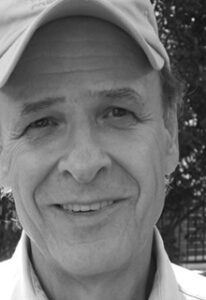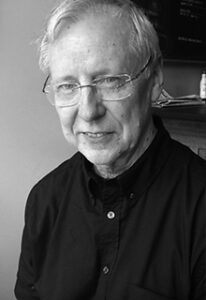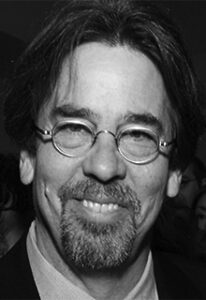rev. of Disturbing the Peace by Richard Yates
In a way,
Disturbing the Peace bears a special relation to Yates's early t.b. ward stories — "Out With The Old," "No Pain Whatsoever," and "Thieves" (published here for the first time) — I guess to the extent the "affliction" of the protagonist can only be questioned in impersonally moral terms: the unafflicted are merely fortunate (not better); and though they alternately deny and seek blame in themselves (and Yates reveals a complex inner dimension of self-despair, delusion and defeat), the victims are just that, their failures and debilities arbitrarily imposed — abnormal to the larger community of the spared, yet participating in an order of evil as universal as death. In one direction, the indictment of the stories is of, say, Camus's criminal god, but taking that bitterly for granted, the fuller tragedy — because it seems human and preventable — lies in us, in crimes of carelessness, neglect, failures to admit, as Camus says, suffering as a
"collective experience."
Unlike physical affliction, however, the affliction of
Disturbing the Peace is not one we're ordinarily prepared to accept as affliction. John Wilder, an "average," thirtysix year old, "successful" New York ad salesman (for a scientific journal), "high, bright apartment," nice wife, ten year old son, is going progressively insane (i.e. "wilder"), and for him, his world and the reader there are connected problems of facing his illness like a constitutional disorder and questioning our part in what contributes to its progress, torment, and its final cost, rather than of seeking to explain its origin, as if that settled the problem, gave us our "moral" (hubris, bad conscience, Freudian repression) and excused us from it. Origin in this case remains mysterious, and we may theorize, but a backward glance (provided well into the book by Wilder in two brief interviews with uninterested psychiatrists) does little but certify the nature of the problem. Instance: Wilder's parents, both clerical workers
during the Depression, lived by a dream of being "Business People" and gradually accomplished it, succeeding in a "snob-appeal" candy business, from which they retired rich, his father to die, his mother to end a vegetable in a nursing home, their name immortalized on candy boxes nationwide. As a child, short, handicapped by a reading problem, too poor for any but a church school, Wilder fought for place against that dream and his sole success was one of art — singing in the choir, where he was also inspired by the "formal religious scene." As a young man, he joins the Army, only to bungle IQ tests, be refused officer school, and do nothing remarkable but lose his religion and get hooked on movies (because "I'm a very, very slow reader"); then miraculously admitted to Yale, he flunks out sophomore year to pursue his own dream of being a movie producer (not a director, "that'd take more talent than anybody with an IQ of a hundred and nine could claim")
rather than join in his parents' dream for him to be "the son and heir . . . the damned prince . . . President" of The Business. He takes what proves to be an uncreative job making Films for Industry, and disappointed, lacking "guts" to hitchhike out to Hollywood and "make that big a break with my parents," ends up selling space for the
Tribune, where he meets his wife, Janice, and "the whole movie-producer idea evaporated," while a "surrogate son . . . Ivy League type" takes over for him in the business. All that's knowable here is a life-deep sense of hollowness, a self desperately reliant on external indices of worth from false to real, loser to winner, rejected to chosen, damned to saved, which is both tied to and rejecting similarly extrinsic values in others, who manage somehow to qualify by them. In this Wilder is more fatuous kin to April Wheeler in Yates's classic
Revolutionary Road (1961); both are sad hearts at the supermarket, who remain trapped by its values, translating their spiritual and emotional needs into confused reliance on its approval. Both are obsessed with images of an "elect" alternative to "average" lives neither can accept; but where April is haunted by a glittering, worldly Thirties, with a dash of Sartre's and de Beauvoir's postwar Paris, Wilder's dreams of tallness, intelligence, celebrity, talent, jetset freedom, and purpose daily assault him on the Kennedy Era Evening News. To be the object of that level of attention is the only answer to the depth of his need, and his consciousness of being less, of failing to achieve it, of being denied, of guilt for his denial of others (especially his ten year old son, who develops emotional problems in response to his own) is more that he can take.
The emphasis of the book is on the anguish of that consciousness as it breaks and on the world's and Wilder's inability (and refusal) to accommodate its humanity. Yates puts us through it, in and with Wilder, who is apparently "normal" in his susceptibilities to and contempt for sham one moment, then abnormally strained and helplessly abusive, self-destructive and furious the next, then coming out of it bewildered at himself, fearful to admit its implications and desperate to believe he's normal again. With the first of these breakdowns — he threatens to kill his wife and son — he's accidentally committed to Bellevue for an extended weekend and in relative clarity (broken by occasional relapse) sees it as a kind of hell for the rejected, broken and lost, and overcomes aversion, to some extent emulating a different kind of "superiority," that of the black attendant, Charlie, for whom any man's anguish means responsibility and whose even acceptance, treating need,
demanding what self-respect and consideration each patient can manage, bespeaks a humanistic sense of suffering like Camus's. Momentarily, Wilder acknowledges his own condition (in a way that Blaine, say, in "Thieves," cannot), respects that of others — or at least of one other, Dr. Spivack, a keeper turned patient — and tries to give the kind of human recognition that he needs. But this is only tentative, and once released (certified he's not
that afflicted), he throws away Spivack's phone and address and claim to kinship, and reembraces the normal world with relief.
Miraculously that world now offers to ratify the dreams he failed before. He finds a Jacqueline Kennedy looking girl, who shares and revives his "movie-producer idea" and discovers in his Bellevue experience, not cause for shame or concern, but "an absolute natural for the screen. . . And you may be one of the very few patients. . . who can remember it all so vividly, because you were stone-cold sane the whole time" (123). I think we forget, or want to, with him, that he wasn't sane, and as this new role draws him praise and attention, opening worlds of "success" (underground "geniuses," Ivy League professors, and finally Hollywood executives), we feel its lure and ignore the ironic cost. For to film his story-"to put his passion on the screen"-he must confront and find significance in the very anguish he's attempting to escape. "To endure an experience like that, to observe it all so acutely despite the wretched emotional state you must have
been in, and then in all humility to recapture it, to project it, to find order in the very chaos of it — I find that remarkable" (142), the Professor praises him (at the girl's alma mater, where they go to make the movie), and of course it's beyond him, placing the burden of self-knowledge squarely on the shoulders of despair. Further encouraged by the girl (Pamela) — "You really do have a natural talent for this" — he credibly advises the production, objecting to reductions, insisting on fidelity, but then (and our surprise at this is the measure of our implication) when he wants to add a patient with a Christ delusion and have "a crucifixion in a madhouse" and over objections of the director ("It's cornball") is cheered on by the others ("Perfect . . . the irony! . . . objective correlative for the whole"), something's gone too far, and his madness has found sense it must fulfill. The "dizzying rise of his self-esteem" peaks: as artist,
suffering to make sense of madness, he
is Christ —
that's been the self he's feared discovering — and "born for this, for finding order in chaos," he must call his mother (Mary? Marjorie Wilder?) both to confirm and report it (this is one of the most baffling and convincing moments in the book). His next recovery — sustained by a drug therapy that promises to work; strained by losing Pamela to an alcoholic novelist who fits the Professor's praise (who shares his weakness, yet
has talent and endurance, is tall, and even goes to work for Bobby Kennedy), by guilt for his son, by apparent abortion of the movie project; strained still more by Pamela's return, flight with her to Hollywood (breaking with his wife and son), and irrational luck that procures a Real Producer's interest in the film — is only preparation for his irrevocable collapse. Here he's subjected to a story conference with experts, who prescribe an "order" to his chaos he himself cannot imagine and — whose truth threatens him at the same time it offers to make his anguish matter. "Put a man in Bellevue," he's told, individualize him, "let him go back to whatever problems sent him there . . . then wipe him out . . . let him get so he can't live in civilized society anymore" (214); another writer defends a characterization that is eerily accurate and prophetic: "He can't handle the hope the girl's given him; he's emotionally tied to the past . . .
He systematically destroys everything that's still bright and promising in his life . . . He winds up in an asylum that makes Bellevue look like nothing . . . The seeds of destruction are there in the man from the start" (220). If this weren't enough, with its invitation to matter, and its emphasis on helpless fault, they assign the rewrite to the novelist who took Pamela away before, who threatens to again, and who stands in Wilder's mind as "surrogate" for the self-redeeming artist he can't be. As if his only option is to live what he can't otherwise express, and fearfully protesting "I'm only a man," he breaks the final time, convinced one moment he's Christ and CBS News is waiting to cover his Second Coming, and in the next he's the equally newsworthy criminal (destroyer of all things "bright and promising"), Kennedy's assassin, killer of blacks, killer of his wife and baby, captive in a hospital bed, which is wired like an electric
chair, his torture and punishment to see his deeds reported on the t.v. overhead.
The "logic of his downfall," and its cost, is lost to his world. Their reaction to Wilder is parallel to his own when first confronted with suffering in Bellevue, and their relief to escape him, to have him out of their world and safely disposed of, imitates his own relief on leaving Bellevue and tossing away Spivack's address: "It's nothing. It doesn't matter." Pamela, who has loved him only by denying his problems throughout, while at the same time turning his experience to a commodity that will launch her career, is spokesperson for the sane at large: "I know it's awful of me but I don't much care . . . His problems are just — beyond me, that's all; too much for me. He needs professional help, and that's what he'll get" (272). This habit of dismissal is endemic; throughout the book, Wilder's "problems" have meant imposition — beyond his wife (whose favorite words are "comfortable, civilized, adjustment,
relationship"); beyond his AA sponsor; beyond psychiatrists either quack or distracted; beyond real and would-be artists whose interest in his story is divorced from interest in his life; beyond a world whose obsession with normalcy, like his own, is based on paradoxical notions of "uncommonness." The case is more extreme than in
Revolutionary Road, where the implications of April Wheeler's downfall took some effort to anaesthetize and had positive effect on at least one minor character (Shep Campbell). Here the world is casual and cold, untroubled by its faults, as if Wilder himself were the only problem and rid of him now brightness and promise is assured. In the ease of that denial we should read, having experienced enough of our own susceptibility through Wilder and felt humanity at issue in his loss, either a repellent adaptation or a cultural deficiency that may be spared, but still invites his fate. Yates plainly exhorts us: Wilder's loss is ours, and there can be no genuine "brightness and promise" that denies this cost. But where we should feel guilt, regret, and deepened responsibility, I'm not sure we do, or given the extremity of indictment, that Yates has gone far enough to provide against our defenses. Whether we need a "conscience" figure to help us; whether overall the narrow
sampling of "normal" characters seems unjust; whether the reliance on symbolism (Tallness, Business, Art, etc.) in replacing the richly textured social and psychological dimensions of Yate's usual storytelling renders his argument too abstract; whether the plot, impatient to pose crises, fails to make us to earn its complications, so that as they pain or challenge, we can't dismiss them — I think there are flaws in the difficult moral artistry here that will allow some readers to identify too readily with responses that should unsettle them. But any flaws — which prove negligible for readers more aligned with Yates's perspective — are a function of the magnitude and generosity of the risk. This is a courageous novel, addressing issues of a scale and complexity close enough to tragedy to remind us that Yates is one of very few novelists with the "keen vision and feeling of all ordinary human life" and the strength of mind and spirit that implies.



